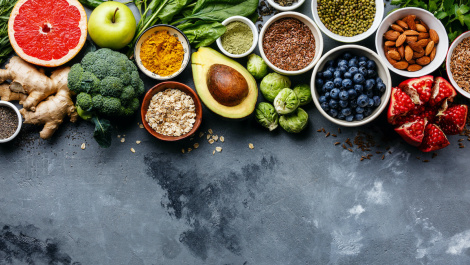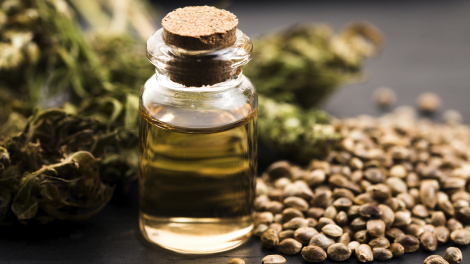At some point in time, we’ve all been cautioned against the damaging effects of inflammation. You may have heard about inflammation in painful conditions like inflammatory bowel disease and others that end in “-itis” (like arthritis). But you may not have heard inflammation is also a silent partner when it comes to obesity, heart disease, stroke, diabetes, cancer, depression, and Alzheimer’s.
The fascinating thing about inflammation is that it isn’t always bad - sometimes it’s actually good for our health! What does matter is the type of inflammation you might be suffering from - and what you eat has a surprising effect on it!
What is inflammation?
Inflammation is your body’s natural response to injuries and infections. Your body fires up your immune cells which release inflammatory compounds that promote healing. It helps to fight off microscopic invaders (infection-causing bacteria and viruses, like the common cold) and helps our cells and tissues recover from injury (like cuts, burns, and breaks).
When inflammation is confined to small areas of the body that are infected or injured and lasts for a few days or weeks, it aids healing. This is when you might feel: redness, swelling, heat, pain, and experience loss of function in that area. This “healing” inflammation is known as acute inflammation. Once the infection is over and/or the wound is healed, this inflammation usually subsides.
The problem comes when inflammation is more widespread throughout the body and lasts months or years. This kind of inflammation, known as chronic inflammation, is sometimes “silent” - it may not have many symptoms at all. Long-term chronic inflammation doesn’t promote healing the way short-term acute inflammation does - there isn’t a specific infection or injury to heal! Instead, it can lead to slow steady damage and disease throughout your entire body - your heart, your brain, etc. With chronic inflammation, even though symptoms are often not present, damage can still be happening.
What causes chronic inflammation?
As mentioned, chronic inflammation doesn’t necessarily stem from infection or injury.
It is associated with a lot of medical conditions as well as some food and lifestyle habits. Things like heart disease, high blood pressure, diabetes, autoimmune conditions, obesity, cancer - even Alzheimer’s and depression - have been linked with high levels of inflammation. Also, smoking, drinking too much alcohol, and not being very active are large factors. And when it comes to foods, eating too much sugar and processed foods are common culprits linked to high levels of inflammation.
How do you know if you have chronic inflammation?
Unlike signs of acute inflammation (redness, swelling, pain, heat, and loss of function), chronic inflammation may not have specific symptoms. Many of the conditions linked with chronic inflammation are long-term conditions that silently develop and grow over time.
One way to check your levels of inflammation is through a blood test from your doctor or health professional. Depending on the tests, they may be able to measure levels of certain inflammatory markers, like “C-reactive protein”, “IL-6” and “TNF-alpha”. If you’re concerned, speak with him/her about this option.
How to reduce chronic inflammation
There are a lot of things you can do to help reduce chronic inflammation and strive towards optimal health. In fact, what you eat has consistently been shown to affect the amount of chronic inflammation in your body! One of the quickest, easiest ways to reduce chronic inflammation is by making educated food choices:
- Eat a nutritious diet that includes a variety of whole foods. Your body needs enough of all the essential vitamins and minerals. Include plenty of fruits and vegetables, nuts and seeds, legumes, fish, and if you’re not sensitive to them, whole grains and dairy.
- Include more foods known for their “anti-inflammatory” compounds like tomatoes, fruits and berries, leafy greens, nuts, olive oil, and fatty fish.
- Minimise inflammatory foods like ones that contain added sugar (including drinks), refined grains (like those made from white flour), red and processed meats, hydrogenated oils (like in margarine and shortening), foods that are deep-fried (like chips/crisps) or charred (like well-done barbequed meats).
Making these changes will help your body stay healthy and reach optimal wellness.
Let's review.
Inflammation is natural and can help heal our infections and injuries, but when it happens for a long time throughout our bodies (i.e. becomes “chronic”), it can cause disease. How we treat our bodies is a huge factor when it comes to long-term inflammation. Eating more natural, whole foods, and fewer sugar-sweetened processed foods is key to reducing inflammation and living your optimal life.
If you think you have chronic inflammation and aren’t managing to reduce it on your own, please consult your doctor or health professional - they can test your inflammation markers and ensure that you get on a programme that will get in under control.







Comments